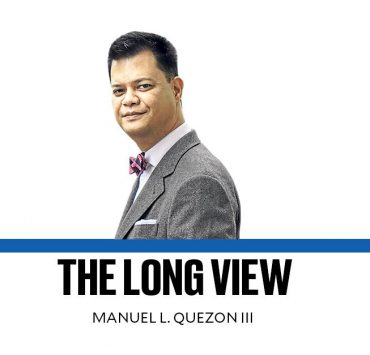Funding education
The most powerful weapon at the constitutional command of Congress is the budget. The natural response to national crises is to legislate more funds to address them. Sen. Sherwin Gatchalian has noted that the government deployed P100 billion for vaccines to deal with the pandemic, and believes—as many voters do—that the education crisis demands a comparable commitment of resources.
Education is an expensive process. For basic education alone, the number of students and staff, the 12-year duration of the cycle, and the multiple, contextual conditions affecting learning outcomes—like malnutrition, that must also be addressed—magnify the sector’s funding requirements. Gatchalian estimates that the Department of Education’s (DepEd) learning recovery program only has about 30 percent of the P10 billion budget needed for 2024. DepEd also reports a backlog of 159,000 classrooms costing P397 billion. Referencing the pandemic offers reassurance that Gatchalian still remembers the problems that both the DepEd and the Department of Health (DOH) faced in managing crisis response.
The public knows little about the “learning recovery program.” Assuming it is the right vaccine for our education epidemic, how will DepEd manage the additional funds? For 2023, DepEd received P15.6 billion to construct 6,000 new classrooms, 4,000 of which have not been delivered.
Meanwhile, the public is still awaiting the outcome of investigations on the corruption charges against Pharmally for the DOH’s anomalous vaccine procurement and on DepEd’s overpriced computer purchase. What steps has DepEd taken to address classroom capacity and corruption problems? These are operational issues that Congress cannot directly manage. But they require attention because Congress always has to confront the imbalance between demands for funding assistance and available financial resources to meet them.
The Philippine Business for Education or PBEd has reduced the many claims for education funding support into nine areas. But the Second Congressional Commission on Education (EdCom II), with more external experts added to congressional in-house talent, has unsurprisingly identified more priorities, now numbering 28. There’s no lack of ideas to help education but most need funding, forcing trade-offs. Still, some measures to help the reform process should not demand inordinate costs.
Many private institutions would be ready, with minimal support, to undertake research on education, probably the broadest avenue for private-public collaboration. As part of the K-12 law, Congress also required DepEd to conduct research on its implementation and outcomes. The Philippine Normal University has undertaken some of these studies, but often with confidentiality conditions. These should provide valuable materials for scholars and postgraduate students doing dissertations, whose findings may benefit the education bureaucracy without cost to the government. So why should DepEd impose confidentiality provisions that limit public access to them?
EdCom II has already endorsed key recommendations proposed by the private sector, such as opening up for research the Licensure Examination for Professional Teachers. Why restrict credible research institutions from analyzing data, unexplored for 50 years, that are so critical to understanding the academic formation of teachers?
DepEd has a three-year-old study, presumably funded from public sources, on the high school voucher program. Why not make this study available to private institutions seeking to improve their senior high school courses? Such studies should also contribute to better-informed discussions on proposals enjoying widespread public support, including the expansion of the voucher program to cover more students in high school and its extension to children in elementary education.
Rather than impose an additional burden on public resources, these measures will help reduce government costs. It is more expensive, on a per-student basis, to fund the basic education of children in public than in private schools. Apart from the budget impact, presumably a congressional concern, these measures will also promote other goals that government has proclaimed important.
They will also relieve the pressure on DepEd, which needs breathing space and time to recover from the pandemic and to rebuild classrooms, nearly 90,000 of them requiring major repairs. Second, freeing the organization from the burden of keeping pace with an ever-expanding student population will allow it to focus on the long-term effort to address the quality of education issues exposed by international assessment tests. Finally, additional revenue flows will help reinforce the private basic education sector, diminished by the pandemic and government populist measures, and make it a stronger partner for public-private complementarity.
Additional financial resources sourced by Gatchalian can fund other worthy educational initiatives, particularly to improve the in-service training of public school teachers.
—————-Edilberto C. de Jesus is professor emeritus at the Asian Institute of Management.
—————-Business Matters is a project of the Makati Business Club (makatibusinessclub@mbc.com.ph).




















